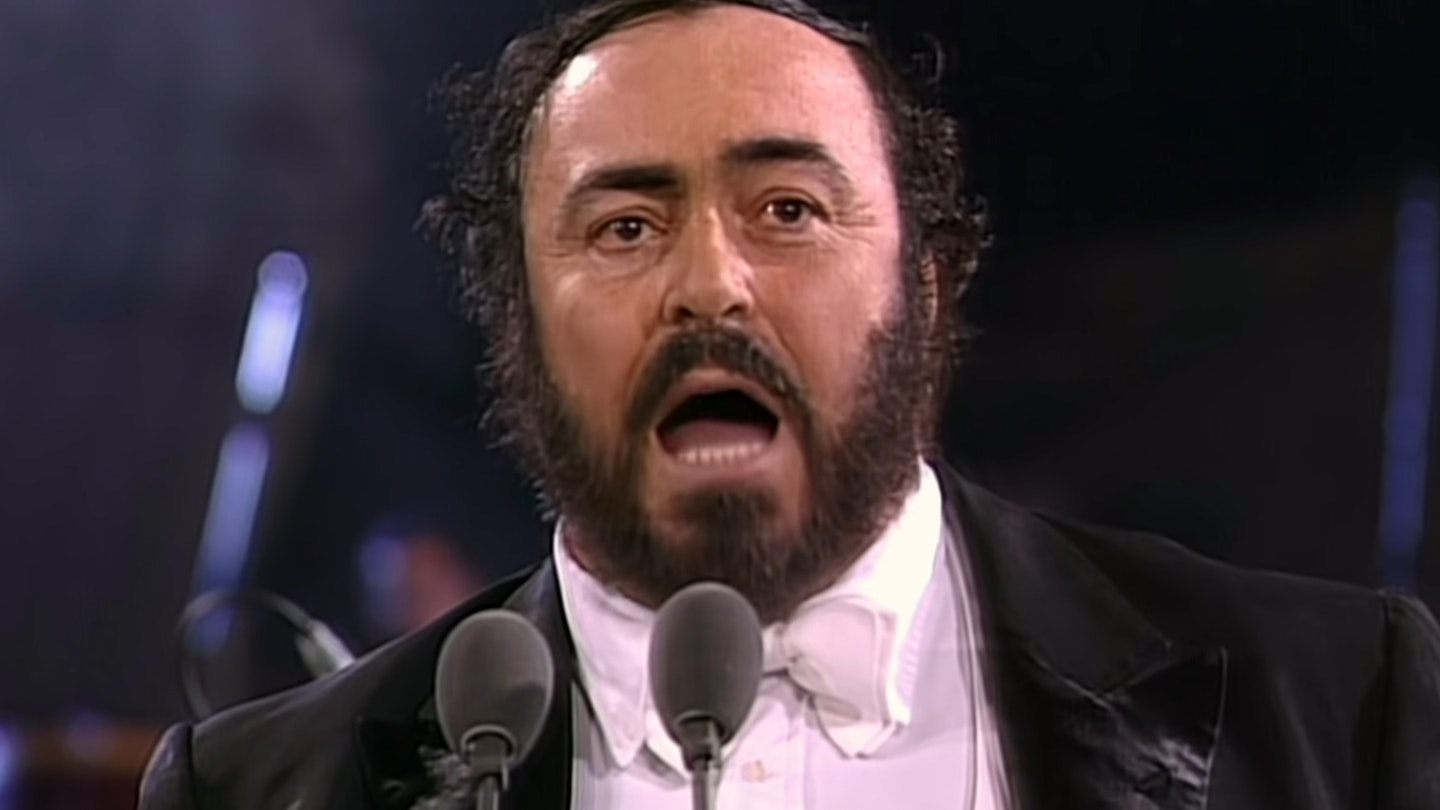After covering The Beatles with Eight Days A Week: The Touring Years, Ron Howard mounts a straightforward but enjoyable portrait of Luciano Pavarotti, one of 20th century music’s greatest talents. In many ways Howard’s film mirrors its protagonist; populist, fun but seemingly able to turn a blind eye to some of his story’s darker, more dubious corners.
The film surprisingly starts in 1985 with Pavarotti up the Amazon, trying to bring opera to the masses in the jungle like a scene from Herzog’s Fitzcarraldo. It’s an idea — Pavarotti’s desire to share his passion with the widest possible audience — that runs through the whole story, as Pavarotti keeps on increasing the size of his markets, from his debut in La Bohème in 1961, to the first live opera at the Met (Pavarotti admits to being a nervous wreck), to teaming up with rock concert promoter Harvey Goldsmith (who is good value as a talking head, recalling how Pavarotti gave his parents a private rendition of ‘Ave Maria’), to ruling the world with the Three Tenors concert alongside Placido Domingo and José Carreras — the footage will still make the hair on the back of your neck stand on end.
Gets by on the ebullience of its subject.
But even when Pavarotti seemingly couldn’t get even more popular, his attempts to fuse classical opera with pop by teaming up with the world’s biggest contemporary artists (in the name of charity) brought him to an even wider crowd, even in the face of classical music snobbery. Bono tells the story of how the singer won over his housekeeper as a means of engaging Bono in a Sarajevo concert, the U2 frontman calling him “a great emotional arm-wrestler… he will break your fucking arm.”
Time and again, Pavarotti tells vibrant tales — Pavarotti used to bring suitcases of tortellini on tour with him — and is good on the technicalities of his talent, explaining his mastery of breathing, his virtuoso ability to hit a run of high Cs and his talent for making the tenor range sound warm and organic. There’s great archival footage, running the range from Johnny Carson to an Amex ad, to show his growing stature in the pop consciousness, but what Howard’s film doesn’t really do is offer a point of view or an angle. If there were criticisms from the elite classical world, they are glossed over. And equally his marital affairs — with soprano Madelyn Renee, then with his assistant Nicolette Mantovani (34 years his junior) which proved a scandal in Italy — are given an easy ride. It’s not the most rigorous or insightful documentary, then, but gets by on the ebullience of its subject and his ability to interpret some of the world’s most beautiful music.

